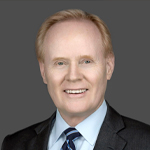Capital Forum Provides Roadmap of Likely State Law Enforcement Priorities in 2025 and Beyond
The National Association of Attorneys General (NAAG) is a nonpartisan national forum for America’s state and territory attorneys general to collaboratively address issues important to their work protecting the rule of law and the United States Constitution. On December 9-11, 2024, NAAG convened a Capital Forum in Washington, D.C., where attorneys general from all over the United States shared presentations and engaged in dialogue that provided a clear picture of likely state law enforcement priorities in 2025 and beyond. Attorneys from Shook, Hardy & Bacon LLP’s Government Investigations and White Collar Practice were in attendance, and this is the first of a series of client alerts in which they will be sharing their insights and observations.
New Technologies, New Enforcement Priorities
Many of the enforcement priorities discussed by the attorneys general reflected the rapid technological developments of recent years. Cybersecurity was front and center, including a conversation with the director of the Cybersecurity and Infrastructure Security Agency, Jen Easterly. Easterly emphasized the many and varied threats to the United States’ infrastructure from its nation-state adversaries, along with the need to balance technological innovation with ensuring information security.
Social media also received significant attention, with United States Surgeon General Vivek H. Murthy, M.D., M.B.A., speaking about his recent recommendation to Congress that warnings be placed on social media apps to alert parents and children to their potential harms. Some attorneys general in attendance spoke about their efforts to seek state regulation of social media and/or bring enforcement actions against social media platforms.
Similarly, advances in artificial intelligence were a source of concern for attorneys general, including the potential that AI could be used to impersonate individuals for purposes of identity theft or fraud or even be employed to create harmful content like child pornography and “unclothe” minor children (referring to technology that allows users to upload photos or videos and for a fee, the clothing on these minors can be removed and converted to naked images or videos). [Author’s Note: The United States Senate unanimously passed the bipartisan TAKE IT DOWN Act, which now moves to the House for consideration. The TAKE IT DOWN Act, which Senators Ted Cruz (R-Texas) and Amy Klobuchar (D-Minn.) introduced, would criminalize the publication of non-consensual intimate imagery (NCII), including AI-generated NCII (commonly referred to as deepfake revenge pornography), and require social media and similar websites to have in place procedures to remove such content within 48 hours of notice from a victim.]
Familiar Problems, New Approaches
Although the nation’s drug war is certainly not a new phenomenon, the recent surge in fentanyl distribution presents new challenges that will likely be a focus for attorneys general. A presentation by Anne Milgram, administrator of the Drug Enforcement Administration (DEA), addressed that agency’s strategy for addressing this crisis and the ways in which partnerships between DEA and state law enforcement can be beneficial. Milgram’s remarks illustrated the ways in which the contemporary drug war is both intrastate and international, with precursor chemicals manufactured in China and India, fentanyl manufactured in Mexico, and smuggling, use and money laundering occurring across the globe.
Nor is fraud a recent innovation. But the potential for fraud in the charitable sector may be less well known to some well-meaning donors. District of Columbia Attorney General Brian Schwalb and South Carolina Attorney General Alan Wilson moderated a session about the governance failures, compliance issues and outside bad actors that can lead to fraud in this sector and disincentivize giving. A separate segment with Rohit Chopra, the director of the Consumer Financial Protection Bureau, also addressed the many facets of fraud in the contemporary marketplace, as well as newer phenomena like misuse of consumers’ personal data and the systematic exclusion of individuals from the banking system due to overdrafts or free speech.
Another issue that has long been a focus for attorneys general and other politicians is the rising cost of health care. Ohio Attorney General Dave Yost moderated a panel about an area in which his state has demonstrated leadership, litigation against pharmacy benefit managers (PBMs) for alleged overcharging of state entities. This area is likely to remain active and become even more complex as PBMs make corporate structure changes and drug pricing arguably becomes even less transparent.
Finally, the Capital Forum included a program on the United States Supreme Court’s recent and upcoming activities, which admittedly lacked blockbuster cases like some other recent court terms, but are likely to shape administrative law for decades to come.
Conclusion
When dozens of attorneys general gather, news is likely to be made, and NAAG’s recent Capital Forum was no exception. The December 2024 program provided insight into these state leaders’ recent successes and likely enforcement priorities for the coming year. As leaders in the enforcement space, Shook’s government investigations and white collar attorneys were pleased to take part in this program and to provide clients and potential clients with this high-level overview. In coming weeks, they will continue to release client alerts as part of a series of AG alerts that drill down further into the specifics of some of the key areas highlighted above.



